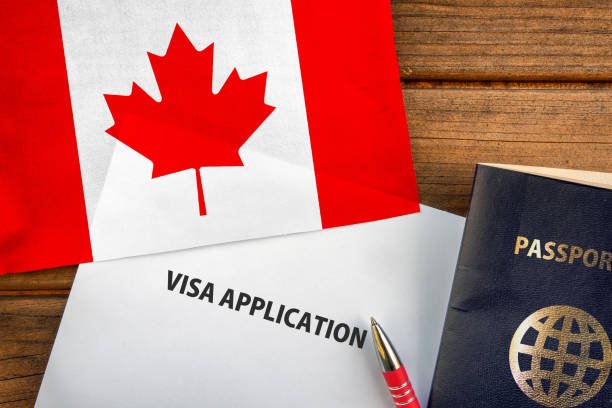Advertisement
Migrating to a new country like Scotland is often accompanied by challenges such as finding legal work, securing residency status, and adapting to a new culture. Fortunately, Scotland’s job market has been shaped to support international recruitment through sponsored visa pathways. These opportunities have been created to fill gaps in industries such as healthcare, technology, construction, education, and hospitality.
This guide has been developed to provide a detailed overview of Scotland’s visa types, highlight top jobs with sponsorship, explain application procedures, and offer insights into life as an immigrant worker in Scotland.
Advertisement
Scotland’s Immigration System
Scotland vs. the UK Immigration System
Although Scotland is part of the United Kingdom, it has shown strong interest in shaping immigration policies that specifically meet its demographic and economic needs. The UK operates a points-based immigration system, which Scotland follows. However, Scottish authorities actively lobby for relaxed immigration routes to encourage workers to move north of the border due to Scotland’s aging population and skills shortages.
The primary difference lies not in the visa rules themselves but in how Scotland promotes certain roles and recruitment programs. For example, Scotland’s government regularly publishes calls for more health and social care workers and works closely with employers to provide sponsorship opportunities.
Importance of Visa Sponsorship
Visa sponsorship is the process by which a UK-based employer or institution takes responsibility for supporting an immigrant’s visa application. A Certificate of Sponsorship (CoS) is issued to the worker, which is then used to apply for a work visa. This sponsorship ensures that the job meets the salary and skills requirements set by the UK Home Office, thereby allowing legal entry and residence in Scotland.
Types of Visas Available for Immigrants in Scotland
Skilled Worker Visa
The Skilled Worker Visa is the most common route for foreigners seeking employment in Scotland. It has been designed for those who have received a job offer from an approved UK sponsor. The job must meet a minimum salary threshold (usually £26,200 per year, though lower thresholds exist for shortage occupations).
This visa allows stay for up to 5 years and can be renewed. After five years, an application for Indefinite Leave to Remain (ILR) can be made, which is the first step towards British citizenship.
Health and Care Worker Visa
Healthcare professionals and adult social care workers have been prioritized under a special visa category known as the Health and Care Worker Visa. This visa type is highly attractive because it offers reduced fees, exemption from the immigration health surcharge, and fast-track processing.
Roles such as nurses, senior care assistants, paramedics, and social workers are included in this category. Since Scotland has been experiencing a shortage of care home staff, sponsorship for these roles has been widespread.
Seasonal Worker Visa
This visa has been tailored for short-term agricultural roles such as fruit picking, farm work, and horticulture. It allows foreign workers to stay for up to 6 months per year. Many Scottish farms rely heavily on seasonal labor, making this visa a critical part of the agricultural sector.
Student Visa (with Work Rights)
International students studying in Scottish universities can apply for the UK Student Visa. This visa allows limited work rights—up to 20 hours per week during term time and full-time during holidays. After graduation, students can switch to a Skilled Worker Visa if they find sponsorship from an employer.
Graduate Route Visa
This visa was introduced to allow graduates from UK institutions to stay for 2 years (3 years for doctoral students) to look for employment. The time on this visa can be used to secure a job offer that leads to a sponsored Skilled Worker Visa.
Innovator Founder Visa
Entrepreneurs wishing to launch a business in Scotland may apply under the Innovator Founder Visa. A business idea must be endorsed by an approved UK body, and it should demonstrate innovation, viability, and scalability.
Global Talent Visa
The Global Talent Visa is aimed at exceptional talent in fields such as science, research, digital technology, and arts. This visa does not require a job offer but does require endorsement from an approved authority such as Tech Nation or the Royal Society.

Scotland’s Shortage Occupation List (2025)
What the Shortage Occupation List Is
The shortage occupation list is an official list of jobs where there are not enough UK workers to fill demand. When a job is on this list, the salary threshold for sponsorship is lower, visa fees are reduced, and applications are prioritized.
Top Shortage Occupation Roles
- Healthcare: Adult nurses, care workers, senior care assistants.
- Engineering: Civil engineers, design and development engineers.
- IT & Technology: Programmers, software developers, cybersecurity specialists.
- Education: Secondary school teachers in mathematics, physics, chemistry, and computing.
- Construction: Welders, bricklayers, butchers, and other skilled trades.
Top Jobs That Come with Visa Sponsorship in Scotland
Healthcare and Social Care Jobs
The National Health Service (NHS) Scotland has been one of the biggest sponsors of foreign workers. Hospitals and care homes consistently recruit nurses, care assistants, and allied health professionals. Visa sponsorship includes dependents, meaning family members can join and work in the UK.
IT and Technology Jobs
The technology sector in Scotland, particularly in cities like Edinburgh and Glasgow, has been growing rapidly. Employers sponsor software developers, data analysts, and IT security professionals under the Skilled Worker Visa.
Construction and Skilled Trades
Infrastructure projects, new housing developments, and renewable energy installations have created demand for skilled tradespeople. Welders, plumbers, electricians, and bricklayers are regularly sponsored by construction companies.
Hospitality and Tourism Jobs
Scotland’s tourism sector thrives due to its historic landmarks, festivals, and natural beauty. Chefs, hotel managers, and restaurant supervisors are among the roles often sponsored, particularly in rural areas where staffing shortages are acute.
Education and Research Roles
Teachers in STEM subjects and researchers in Scottish universities are eligible for visa sponsorship. The government encourages international recruitment to fill teaching gaps and support academic research initiatives.
Salary Expectations and Benefits for Sponsored Jobs
Average Salaries by Sector
- Healthcare workers: £26,000–£32,000 annually.
- IT professionals: £35,000–£50,000 depending on role and experience.
- Construction trades: £28,000–£40,000.
- Hospitality: £21,000–£27,000 for entry-level roles, more for management.
- Teachers: £30,000–£38,000 depending on region and experience.
Additional Perks of Sponsorship
Employers often assist with relocation costs, visa fees, and initial accommodation arrangements. Sponsored employees also benefit from paid annual leave, pensions, and opportunities for professional development.
How to Find Sponsorship Jobs in Scotland
UK Government Approved Sponsor List
The UK Home Office maintains a list of licensed sponsors. Job seekers can search this list and filter for Scottish employers.
Job Portals and Recruitment Agencies
Websites such as NHS Jobs, MyJobScotland, Indeed UK, and LinkedIn are recommended. Searches should include keywords like “visa sponsorship” to find eligible roles.
Networking and Professional Communities
Building connections with Scottish professionals through LinkedIn or joining online communities for expats can lead to hidden job opportunities.
Application Process for a Sponsored Job
Step 1: Research and Identify Potential Employers
A list of employers who are licensed sponsors should be reviewed.
Step 2: Submit a Professional CV and Cover Letter
Applications should follow UK CV formats and mention readiness to relocate.
Step 3: Interview Preparation
Competency-based interview questions should be practiced.
Step 4: Receiving Certificate of Sponsorship (CoS)
Once an offer is accepted, the employer issues a CoS, which is then used to apply for the visa.
Life in Scotland for Sponsored Workers
Cost of Living
Major cities like Edinburgh and Glasgow have moderate living costs compared to London. Rent, food, and transport expenses are relatively affordable.
Work Culture
Workplaces in Scotland emphasize teamwork, punctuality, and respect. Flexible working arrangements are becoming common.
Opportunities for Family Members
Dependents are allowed to work full-time, and children can attend schools for free.
Challenges for Sponsored Immigrants
Visa processing delays, cultural adaptation, and finding housing are common challenges. However, many immigrants overcome these through support from employers and community organizations.
Pathway to Settlement and Citizenship
After 5 years of sponsored work, Indefinite Leave to Remain can be applied for. Following one additional year of residency, eligibility for British citizenship is gained, granting the right to a UK passport.
Scotland vs England vs Wales – Sponsorship and Work Opportunities
| Factor | Scotland | England | Wales |
|---|---|---|---|
| Visa Sponsorship Availability | High – Strong focus on healthcare, social care, construction, IT, and hospitality. Shortage Occupation List regularly updated to encourage migration. | Very High – London and other major cities offer the most sponsorship opportunities, especially in finance, IT, and healthcare. | Moderate – Sponsorship is available but more limited, with demand focused mainly on healthcare and manufacturing roles. |
| Average Salary Range (Skilled Worker Roles) | £26,000 – £38,000 annually for most shortage roles. Slightly lower than London but competitive with living costs. | £28,000 – £42,000 annually, highest in London but comes with higher expenses. | £24,000 – £35,000 annually, slightly lower but still meets Skilled Worker thresholds. |
| Cost of Living | Moderate – Rent and transport are more affordable than London. Edinburgh and Glasgow slightly pricier than rural Scotland. | High – London and South East England have the highest living costs in the UK. Housing is expensive. | Low to Moderate – Housing and utilities are more affordable than both Scotland and England. |
| Housing Availability | Good – Affordable housing outside major cities. | Limited – Housing shortage in London and Manchester can make rents very high. | Good – Lower demand keeps prices affordable. |
| Job Market Focus | Healthcare, care work, IT, engineering, tourism, construction. | Finance, IT, education, healthcare, retail, hospitality. | Healthcare, education, manufacturing, public services. |
| Quality of Life | High – Less congestion, beautiful landscapes, strong sense of community. | Mixed – More job opportunities but higher stress and cost of living, especially in big cities. | High – Quieter lifestyle, slower pace, more affordable family living. |
| Immigrant Integration Support | Strong – Government programs to attract skilled migrants and help them settle. | Strong – Larger immigrant communities, more resources, but also more competition. | Moderate – Smaller immigrant communities, but welcoming environment. |
Why Scotland Stands Out
Scotland has positioned itself as an attractive alternative for immigrants who want job sponsorship but do not wish to deal with the high costs and competition of London or South East England. The balance of good salaries, affordable housing, and active recruitment campaigns makes Scotland an ideal choice for skilled workers and families.
Key Advantages of Scotland:
- Lower salary threshold for shortage occupations compared to England.
- Strong demand for care workers, making visa approval faster.
- Close-knit communities that help new immigrants integrate more easily.
- Growing tech and renewable energy sectors offering high-paying opportunities outside traditional industries.
Step-by-Step Relocation Plan for Scotland
A clear action plan can help immigrants move from dreaming about Scotland to actually living and working there. Below is a structured, detailed process written in passive voice so readers can follow step by step.
Step 1: Research Job Opportunities
The first step must be focused on identifying job sectors that actively sponsor visas in Scotland.
- The UK Government website should be visited to check the Shortage Occupation List and confirm if the desired profession qualifies for sponsorship.
- Job portals such as Indeed UK, TotalJobs, and NHS Jobs should be searched to locate positions that specifically state “Visa Sponsorship Available.”
- LinkedIn can be used to network with Scottish employers, HR managers, and recruitment agencies that focus on hiring international workers.
Step 2: Prepare All Required Documents
Before applying for jobs, all documents must be kept ready to avoid delays.
- A valid passport with at least six months before expiry should be prepared.
- Educational qualifications, transcripts, and professional certifications must be scanned.
- An updated CV tailored to UK standards should be created, focusing on skills relevant to the UK job market.
- English language proof such as IELTS UKVI must be arranged if required for the visa type.
Step 3: Secure a Job Offer with Sponsorship
Once shortlisted for interviews, efforts should be made to secure a formal job offer.
- Interviews may be conducted virtually, so preparation for online interviews must be done.
- Employers who are licensed sponsors under the UK Home Office should be prioritized, as only they can issue a Certificate of Sponsorship (CoS).
- Once offered, the job contract should be carefully reviewed to ensure it meets visa requirements, including salary thresholds.
Step 4: Apply for the UK Skilled Worker Visa
When the job offer is in hand, the next stage must focus on the visa process.
- The application should be submitted online through the UK Government immigration portal.
- The Certificate of Sponsorship reference number provided by the employer must be entered during the process.
- Application fees and the Immigration Health Surcharge (IHS) must be paid.
- Biometric data (fingerprints and photo) should be submitted at the nearest visa application center.
Step 5: Plan Relocation and Accommodation
Once the visa is approved, arrangements for relocation must be made.
- Affordable flights should be booked well in advance.
- Temporary accommodation in Scotland (Airbnb, hostels, or company-arranged housing) should be arranged before arrival.
- Research on affordable neighborhoods in cities like Glasgow, Edinburgh, Dundee, or Aberdeen must be carried out to decide where to settle.
Step 6: Settle in and Register for Essential Services
Upon arrival in Scotland, integration steps should be taken.
- Registration with a General Practitioner (GP) for healthcare should be done.
- A UK bank account must be opened for salary deposits.
- A National Insurance Number should be applied for if not automatically assigned.
- Local councils and community groups should be engaged with to build social connections and get support for integration.
Step 7: Apply for Dependents (If Applicable)
For immigrants with families, dependent visas must be applied for after the main applicant has successfully relocated.
- Separate applications for spouse and children should be filed through the UK visa portal.
- Proof of relationship (marriage certificates, birth certificates) must be submitted.
- Evidence of adequate funds to support dependents must be shown.
Step 8: Plan for Permanent Residency and Citizenship
Scotland can become a long-term home if permanent residency is pursued.
- After five continuous years on a Skilled Worker visa, an application for Indefinite Leave to Remain (ILR) should be made.
- After ILR, citizenship can be applied for following one year of residency.
- Integration activities such as learning Scottish culture and language should be pursued to make the transition easier.

Why This Plan Works
This relocation plan is designed to remove confusion and create a clear path for immigrants. By following a structured approach, job search, visa process, relocation, and eventual settlement — The new immigrants can reduce stress, save time, and avoid common mistakes. Scotland’s supportive environment and job sponsorship opportunities make this process smoother compared to more competitive regions like London.
Frequently Asked Questions (FAQs)
- Can part-time jobs be sponsored?
- What happens if an employer withdraws sponsorship?
- Can workers switch sponsors?
- Are there age limits for sponsorship?
Conclusion
Scotland offers a range of visa types and jobs with sponsorship that make migration smoother for international workers. By targeting shortage occupations and applying to licensed sponsors, immigrants can secure employment, bring their families, and work towards permanent settlement in one of the most beautiful regions of the UK.


















